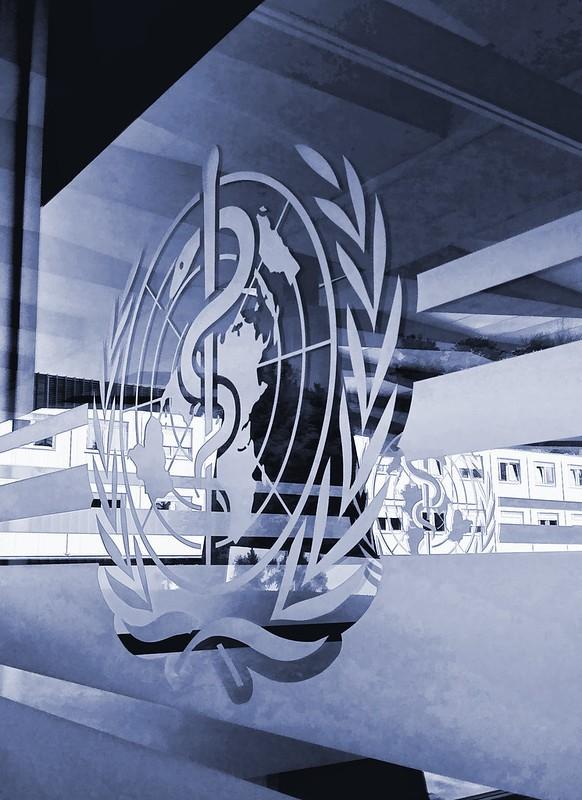Calls for investigations into the World Health Organization (WHO) role in responding to the COVID-19 pandemic and a probe into the source of the virus in China dominated the opening of the World Health Assembly (WHA) today, held virtually and shortened to 2 days.
Meanwhile, the global total passed 4.75 million cases today, with deaths reaching 317,515, according to the Johns Hopkins online dashboard.
Pandemic probe support builds at WHA
More than 100 nations, including all European Union countries, are backing a WHA resolution that calls for an independent investigation into the COVID-19 pandemic, several news outlets reported. The group is expected to vote on the measure tomorrow.
After major outbreaks such as West Africa's 2014 Ebola epidemic, the WHO routinely conducts both internal and external reviews into its actions. However, a handful of countries, including the United States, have called for an earlier investigation, charging that the WHO didn't warn the world soon enough that that it has sided with China. The United States—with the world's highest number of cases and deaths— faces its own criticism for its slow and uneven response.
In his opening remarks to the WHA today, the WHO's Director-General Tedros Adhanom Ghebreyesus, PhD, defended the WHO's response, saying that it sounded the alarm early and often and notified countries and issued guidance for healthcare workers within the first 10 days. He added that the WHO issued the highest alert level on Jan 30, when there were fewer than 100 cases and no deaths outside of China.
He detailed the WHO's efforts to ship tests and supplies to more than 120 countries, train 2.6 million healthcare workers, and organize massive efforts to speed research on treatments and vaccines. "Every country and every organization must examine its response and learn from its experience," Tedros said.
Tedros said the WHO welcomes the review proposal and will start an independent evaluation "at the earliest appropriate moment." Lessons learned from the pandemic should ideally leave the world better prepared, but reviews after the SARS, 2009 H1N1, and Ebola epidemics resulted in recommendations for countries to address gaps in global health security, some of which went unheeded.
He said the world needs to strengthen the systems it already has, including the WHO, and has all the tools, science, and resources to make the world safer from pandemics, but the commitment to using them is lacking. "Today I am calling on all nations to resolve that they will do everything it takes to ensure that the 2020 coronavirus pandemic is never repeated," he said.
The WHA, made of health ministers from 194 countries, is the decision-making body of the WHO.
China airs support for probe
China's President Xi Jinping today in an address to the WHA said it supports a comprehensive review of the pandemic, once the virus is under control, Reuters reported.
China had opposed earlier calls for similar investigations from the United States and Australia, but Xi said the country would be open to an impartial review that shares lessons and highlights weaknesses, led by the WHO with objectivity and fairness.
He defended China's actions as transparent and timely, and he pledged $2 billion over the next 2 years to help with the COVID-19 response. Also, Xi vowed that China's vaccine, which entered human trials on Mar 16, would be available to the rest of the world to help slow the spread of the virus.
Tensions strong in US address
Meanwhile, the US representative to the WHA—Health and Human Services (HHS) Secretary Alex Azar—strongly criticized the WHO today in his remarks before the group. "We must be frank about one of the primary reasons this outbreak spun out of control: There was a failure by this organization to obtain the information that the world needed, and that failure cost many lives," he said.
He said the United States has been transparent about drug and vaccine treatment trial results, which will benefit the whole world: "WHO's operations must be transparent too, and we support an independent review of every aspect of WHO’s response to the pandemic."
In a thinly veiled criticism of China, Azar said one country, in concealing its outbreak, made a "mockery" of transparency obligations, which resulted in tremendous costs to the rest of the world.
Health systems under pressure in Russia, Brazil
As global leaders met, two of the current main hot spots—Russia and Brazil—struggled with the impacts from the COVID-19 outbreak. Russia has the world's second-highest total, second only to the United States, and Brazil is now the fourth hardest-hit country.
Russia today reported 8,926 more cases, down over the last few days, but it said the situation is difficult, and it has asked the United States for reciprocal medical aid, Reuters reported today. Moscow is the country's biggest hot spot, but President Vladimir Putin said today that the southern region of Dagestan was overwhelmed, with 3,460 cases and its health system under strain, according to a separate report from Reuters.
Another report from the news service said Russia's army has set up a temporary hospital at the country's biggest gold mine, located in Siberia, to treat infected miners following the detection of cases as part of expanded employee testing.
Meanwhile, the health system in Brazil's largest city, Sao Paulo, is close to collapse, with 90% of emergency beds at public hospitals full and expected to surpass capacity within 2 weeks, the BBC reported today.
Brazil reported 4,515 more cases today, raising its overall total to 245,959. So far, 16,370 Brazilians have died from their infections, the sixth-highest fatality total in the world.
Past-peak countries face new challenges
In Europe, where several countries affected early in the pandemic are easing some restrictions, Italy's shops, restaurants, and hairdressers reopened today, with distancing measures in place, and churches and the Vatican resumed after a 2-month shutdown, after facilities were sanitized and with distancing and other protections incorporated into the services.
Germany said today that it hoped to decide by June 15 whether to allow international travel to resume, with hopes of salvaging some of the tourism season, and Spain signaled that it could reopen its borders by the end of June, when all of its lockdown measures expire.
In France, the country's education minister warned today that a week after some schools reopened in France, 70 cases linked to schools have been reported, according to CBS News, which cited a French radio report. It's not clear if the cases were in students or teachers or if the exposures occurred at home or at school. Affected schools will be closed immediately.
In a United Kingdom development, researchers from Oxford University, in partnership with AstraZeneca, will receive £84 million ($102 million) in new government funding for vaccine development, and the partners have made a global licensing deal to commercialize and manufacture the vaccine, Alok Sharma, the government's business secretary, said yesterday. As part of the agreement, if the vaccine is successful, AstraZeneca could make up to 30 million doses for the UK by September, making it the first country to get supplies.
In Asia, China today reported seven new cases, four of them imported from Inner Mongolia and three of them local: two from Jilin province, where officials are battling a recent cluster of cases, and one from Shanghai, according to the National Health Commission.
The country also reported 18 more asymptomatic cases, 2 of them imported. And South Korea, which is tracking clusters of cases linked to Seoul nightclubs, reported 15 new cases, 10 of them imported; of 5 local cases, 2 were linked to the nightclubs, Korea Centers for Disease Control and Prevention said in an update today. So far, 170 cases have been reported in the cluster.





















